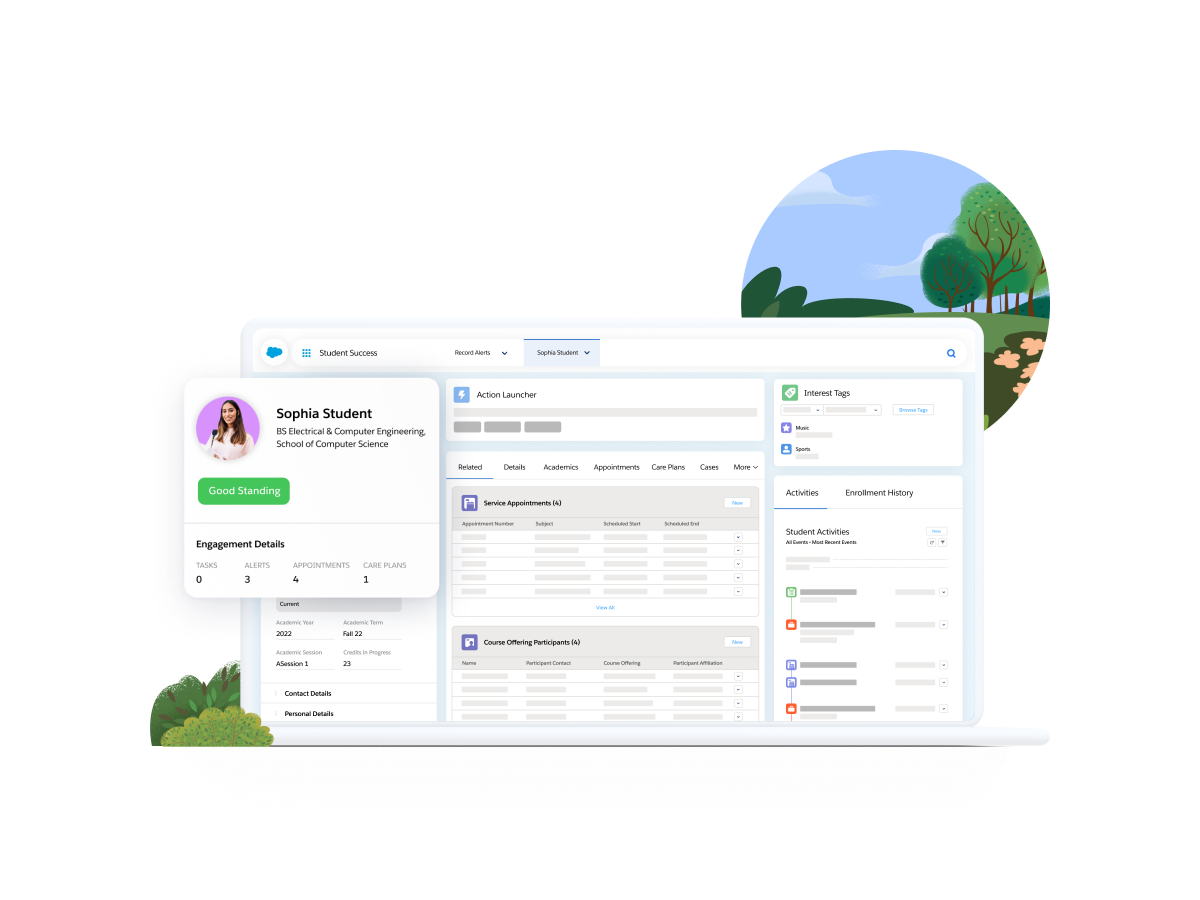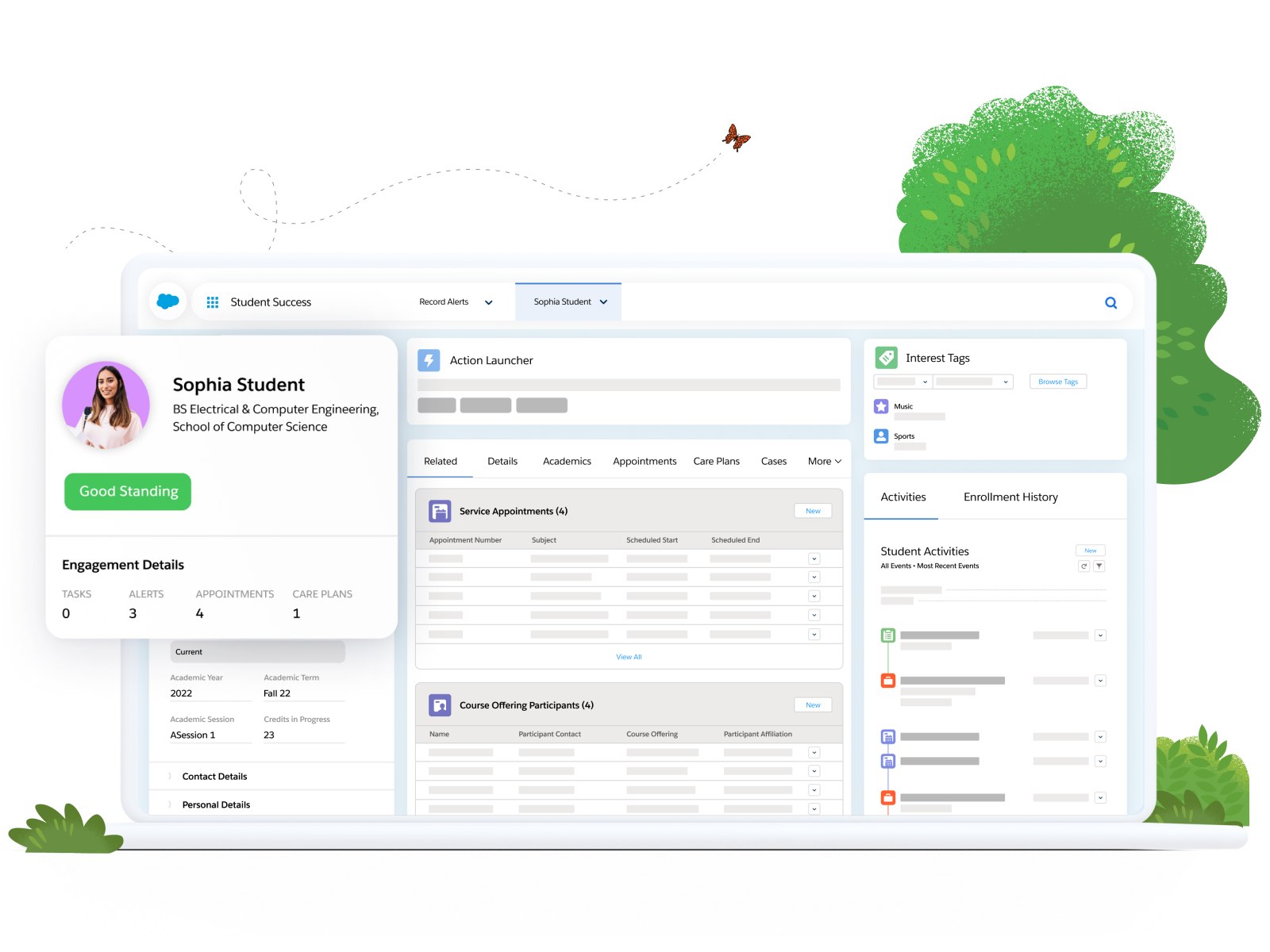As an Amazon Associate, I earn from qualifying purchases
The best CRM for education is one that aligns with the specific needs of educational institutions and offers features such as student management, communication tools, and integration with learning platforms. With the increasing demand for efficient management systems in educational settings, it’s crucial to find a CRM that streamlines processes and enhances student engagement.
Educational institutions require a CRM that caters to their unique requirements, including managing student data, facilitating communication, and integrating with existing learning platforms. As the need for effective management tools in education continues to grow, finding the right CRM is essential for improving efficiency and enhancing the overall educational experience.
By choosing a CRM specifically designed for the education sector, institutions can better meet the needs of students and staff while streamlining various administrative processes.

Credit: www.salesforce.org
How Crm Benefits Education
CRM (Customer Relationship Management) software has become an invaluable tool for educational institutions, revolutionizing the way they manage interactions and relationships with students, parents, and staff. Let’s delve into the specific benefits of CRM in education:
Enhanced Communication
CRM systems facilitate improved communication between students, parents, and educators through personalized messaging, automated notifications, and centralized information for streamlined and effective collaboration.
Improved Student Tracking
With CRM, educational institutions can enhance student tracking by centralizing student data, academic progress, and engagement metrics. This empowers educators to identify at-risk students, personalize interventions, and track their progress more effectively.

Credit: element451.com
Key Features To Look For
When selecting the best CRM for education, key features to look for include student data management, communication tools, integrated analytics for tracking student progress, automated workflows for administrative tasks, and mobile accessibility for on-the-go access to information. These features can streamline operations and enhance student engagement, making it a valuable tool for educational institutions.
When choosing the best CRM for education institutions, it is important to consider the key features that will enhance and streamline your educational processes. These features can make a significant impact on student performance and overall efficiency. Here are two essential features that you should prioritize:
Student Performance Insights
One of the most crucial features to seek in a CRM for education is the ability to gain valuable insights into student performance. Tracking and analyzing student progress is essential for identifying areas of improvement and tailoring educational strategies to meet individual needs. With this feature, teachers and administrators can easily access detailed reports, charts, and graphs that provide a comprehensive overview of student performance in real-time.
The CRM should enable you to track important metrics such as attendance, grades, and assignment completion. Additionally, having the ability to analyze this data over time can help identify trends and patterns, allowing for more targeted interventions and support where needed.
Incorporating a CRM that offers student performance insights will facilitate data-driven decision-making, enabling educators to optimize their teaching methods and ensure that every student receives the personalized attention they deserve.
Integration With Learning Management Systems
Another crucial feature for educational institutions is seamless integration with their Learning Management System (LMS). An effective CRM should be able to integrate effortlessly with your existing LMS, ensuring a smooth flow of information between the two systems.
By integrating your CRM with your LMS, you can centralize data, streamline workflows, and minimize duplicate data entry. This integration enables instructors to easily access vital student information, such as grades, attendance records, and assignment submissions, directly from their LMS platform. With this feature, educators can efficiently manage and organize their courses, reducing administrative tasks and freeing up more time for teaching.
The integration between CRM and LMS allows for seamless communication between all stakeholders involved in the educational process, including teachers, students, parents, and administrators. By leveraging this feature, educational institutions can ensure a cohesive and efficient system that enhances collaboration and improves the overall learning experience for students.
Top Crm Options For Educational Institutions
For educational institutions, selecting the best CRM is crucial. Among the top CRM options for the education industry are Salesforce Education Cloud, CampusNexus, and Ellucian CRM. These platforms offer tailored solutions to manage student data, streamline communication, and enhance overall operations.
When it comes to managing student information, enhancing communication, and streamlining administrative tasks, having a reliable Customer Relationship Management (CRM) system is essential for educational institutions. With the plethora of CRM options available in the market, finding the right one can be overwhelming. To help you narrow down your choices, here are three top CRM options specifically designed for educational institutions:
Crm A
CRM A offers a comprehensive solution for educational institutions to efficiently manage their student relationships. With its user-friendly interface, this CRM simplifies administrative processes, allowing teachers and staff to focus more on student engagement. From tracking student attendance to managing enrollment, CRM A provides a centralized database that ensures accurate and up-to-date information. Additionally, its intuitive communication features enable seamless interaction between faculty, students, and parents, promoting transparency and active involvement.
Crm B
If you are looking for a CRM that emphasizes personalized learning, CRM B is an excellent choice. This CRM understands the unique needs of each student and tailors learning experiences accordingly. With its advanced analytics and reporting capabilities, CRM B provides valuable insights into student progress, enabling educators to identify areas for improvement and implement targeted interventions. Moreover, CRM B offers integration with popular learning management systems, making it easy to manage courses, assignments, and assessments all in one place.
Crm C
For institutions seeking a CRM that goes beyond managing student information, CRM C is a standout option. This CRM not only provides robust administrative functionalities but also offers extensive fundraising and alumni management features. With CRM C, educational institutions can effectively track donor contributions, plan fundraising campaigns, and foster long-term relationships with alumni. Its user-friendly interface and customizable dashboards make it easy to monitor fundraising progress and engage with the school community, ensuring sustainable financial support.

Credit: www.fullfabric.com
Implementing Crm In Education
Implementing a CRM (Customer Relationship Management) system in educational institutions can revolutionize the way they manage interactions with students, faculty, and staff. By centralizing data, streamlining processes, and increasing efficiency, CRM solutions have the potential to enhance the overall educational experience. This article highlights three important aspects of implementing CRM in education: Training Staff, Customizing for Educational Needs, and Integration with Existing Systems.
Training Staff
Properly training staff is crucial to ensure the successful adoption of a CRM system in an educational institution. An effective training program should encompass:
- Orientation sessions to introduce the CRM system to staff members
- Hands-on training to familiarize staff with the CRM system’s features and functionalities
- Ongoing support and guidance to address any challenges or questions that may arise during the implementation process
By investing in comprehensive training, institutions can equip their staff with the necessary skills and knowledge to effectively utilize the CRM system, thus maximizing its benefits.
Customizing For Educational Needs
One of the key advantages of a CRM system is its ability to be customized according to the unique needs of educational institutions. To tailor the CRM system for educational use, consider:
- Custom data fields: Modify the CRM system to include specific fields that capture information relevant to the educational environment, such as student ID numbers, courses enrolled, or academic progress.
- Automation of processes: Streamline administrative tasks by automating processes within the CRM system, such as student registration, grading, or scheduling.
- Integration with communication platforms: Integrate the CRM system with email or messaging platforms to facilitate efficient communication between students, faculty, and staff.
By customizing the CRM system to fit the specific needs of the educational institution, efficiency and effectiveness can be significantly improved.
Integration With Existing Systems
To ensure a smooth implementation of a CRM system in an educational institution, integration with existing systems is essential. Consider the following integration options:
| Integration | Benefits |
|---|---|
| Student information systems (SIS) | Seamless transfer of data between the CRM system and the SIS, enabling accurate and up-to-date information on student enrollment, attendance, and performance. |
| Learning management systems (LMS) | Integration with the LMS allows the CRM system to access course-related data, providing valuable insights into student engagement, progress, and performance. |
| Email and calendar platforms | Synchronization between the CRM system and email/calendar platforms ensures efficient scheduling of appointments, notifications, and reminders for students and staff alike. |
By integrating the CRM system with existing systems, valuable data can be shared seamlessly, eliminating duplication of efforts and enhancing the overall user experience.
Measuring Success And Impact
When it comes to selecting a CRM for education, it’s important to choose one that not only streamlines administrative tasks but also provides measurable success and impact. The right CRM can help schools and educational institutions in various ways, from increasing student engagement to improving graduation rates. In this article, we will explore how the best CRM for education can achieve these goals.
Increase In Student Engagement
Student engagement plays a crucial role in the success of any educational institution. The best CRM for education can help enhance student engagement in several ways:
- Personalized Communication: With a CRM, schools can easily segment students based on their interests, academic performance, and extracurricular activities. This allows educators to send personalized communications via email, SMS, or other channels, increasing the chances of students actively participating and staying connected.
- Attendance Monitoring: CRM systems can incorporate attendance tracking features, making it easier for educators to ensure students are attending classes regularly. By identifying patterns and addressing absenteeism promptly, schools can help boost engagement levels.
- Interactive Learning: A CRM system can provide an interactive learning environment through integrated tools such as discussion forums, virtual classrooms, and online assignments. These features facilitate student-teacher and student-student interactions, fostering engagement and collaboration.
- Progress Tracking: By keeping track of each student’s progress, a CRM can enable educators to provide timely feedback and intervention whenever necessary. This personalized support helps students stay on track while feeling supported and valued.
Improvement In Graduation Rates
Ensuring high graduation rates is a key objective for any educational institution. The best CRM for education can contribute to improving these rates in the following ways:
- Early Warning Systems: A CRM system can incorporate early warning indicators to identify students who may be at risk of falling behind or dropping out. These indicators could include poor attendance, declining grades, or lack of engagement. With timely alerts, educators can provide targeted interventions to help these students stay on track and successfully graduate.
- Academic Planning: CRM systems can enable students to plan their academic journey effectively, with access to course catalogs, degree requirements, and prerequisites. This ensures that students have a clear roadmap towards their degree, reducing the chances of course confusion or delays.
- Career Guidance: By integrating career guidance features into the CRM system, educational institutions can help students explore various career options and make informed decisions. Providing resources, internships, and job placement assistance can significantly increase graduation rates by inspiring students to stay focused on their academic goals.
- Alumni Engagement: A CRM can facilitate alumni engagement by keeping track of graduates and maintaining communication post-graduation. This connection with alumni can provide valuable mentorship and networking opportunities for current students, motivating them to complete their studies and achieve their career aspirations.
With the right CRM for education, measuring success and impact becomes easier. By increasing student engagement and improving graduation rates, educational institutions can enhance their overall effectiveness and positively impact the lives of their students.
Frequently Asked Questions For Best Crm For Education
What Are The Key Features Of The Best Crm For Education Institutions?
The best CRM for education institutions should have features such as contact management, communication tracking, task automation, reporting, and integration with other systems. These features help streamline processes, enhance communication, and improve overall productivity in educational settings.
How Can Crm Software Benefit Educational Organizations?
CRM software can benefit educational organizations by centralizing data, automating tasks, improving communication, enhancing student success, and creating personalized experiences. It enables institutions to efficiently manage relationships with students, parents, alumni, and other stakeholders, ultimately leading to better organizational efficiency and student outcomes.
Is It Necessary For Educational Institutions To Invest In Crm Software?
Yes, investing in CRM software is necessary for educational institutions. It helps streamline administrative tasks, improves communication, boosts efficiency, enhances student experiences, and enables data-driven decision-making. By implementing a CRM system, educational institutions can stay competitive, provide better services, and achieve their goals effectively.
Conclusion
Therefore, choosing the right CRM for the education sector is essential for enhancing productivity and streamlining operations. With the numerous options available, it is crucial to find a CRM that integrates seamlessly with existing systems, offers personalized communication, and provides robust analytics.
By considering factors such as ease of use, scalability, and a strong support system, educational institutions can find the best CRM solution that will effectively meet their needs and drive success.
As an Amazon Associate, I earn from qualifying purchases

